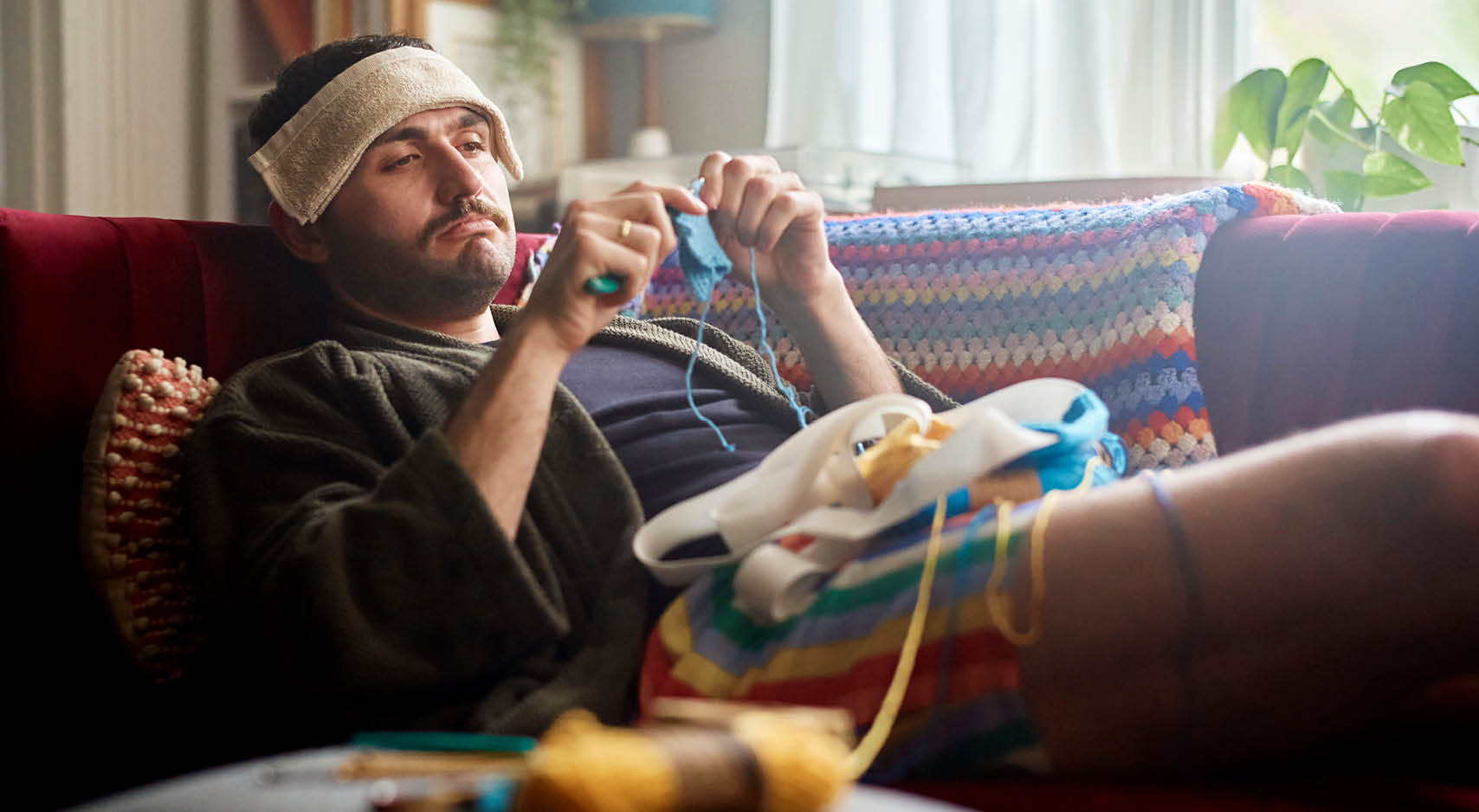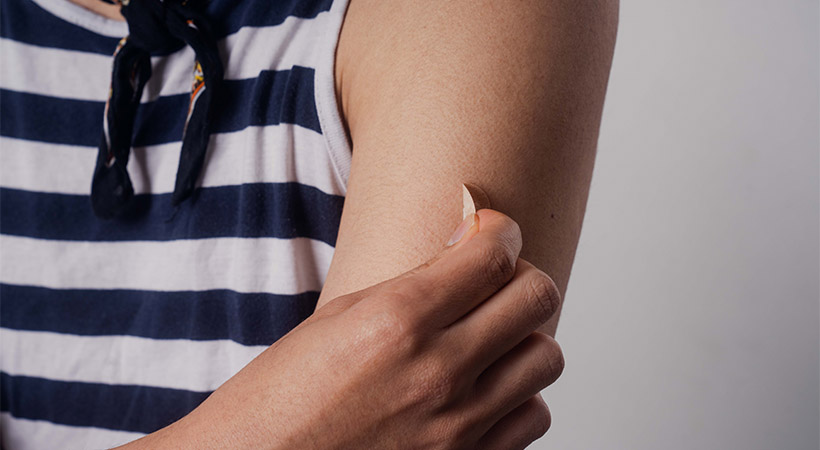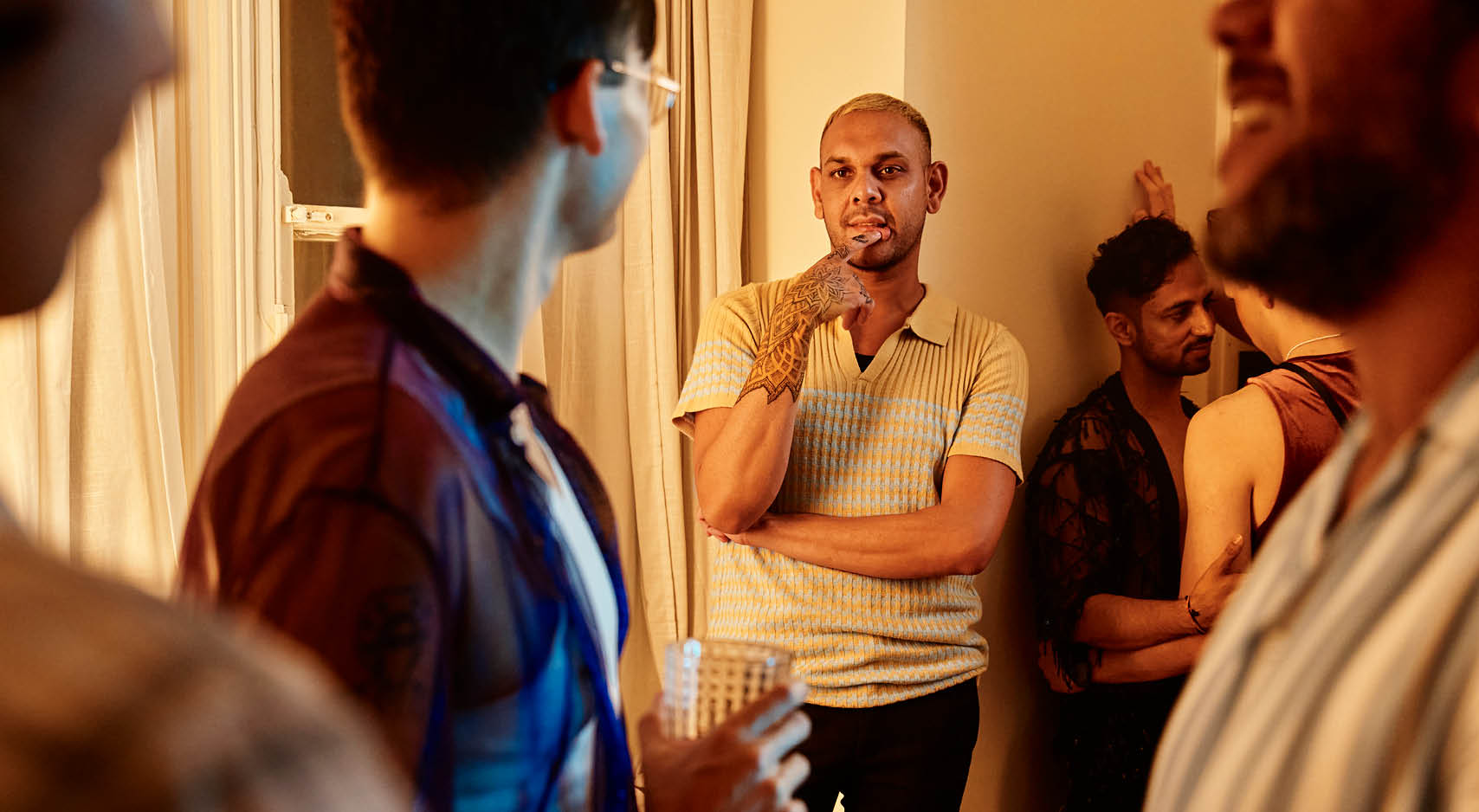Mpox (formerly known as monkeypox) is a viral infection that can affect anyone. The virus can make you feel unwell, and develop painful lesions, sores or rashes. Local transmissions are increasing in Australia, but there are ways to reduce your risk. Here’s your guide to mpox transmission, symptoms, testing and vaccination.
In this article:
Key points
- Mpox is a viral infection that transmits through close contact and can affect anyone
- The virus can make you feel unwell and develop painful lesions, sores or rashes
- Most people recover within a few weeks; some may need treatment for severe pain from symptoms
- Vaccinating is the best way to help prevent mpox and reduce the chance of severe symptoms
- Keep contact details of all your sexual partners to assist with any contact tracing
- Monitor for symptoms, including lesions or rashes, especially after interstate or international travel
- If you think you have mpox, self-isolate and get an mpox test from a doctor or sexual health service
What is mpox?
Mpox is a viral infection that can affect anyone. It can make you feel unwell and cause painful rashes, lesions, or sores. Mild cases usually go away without needing treatment, but unvaccinated people may experience more severe symptoms that require medical treatment.
Most cases are from intimate sexual contact between guys, especially men who have sex with men. Vaccinating is the best way to help prevent mpox and reduce the chance of experiencing severe symptoms. Find your nearest mpox vaccination service with our interactive map.
How many mpox cases are in Australia?
There have been 1450+ cases of mpox in Australia since June 2024; more than 1000 of these have been since September. This is 9 times more cases than Australia’s 2022 mpox outbreak.
With local transmissions rising, people are urged to be aware of mpox symptoms, especially after interstate or international travel.
Vaccinating helps stop mpox outbreaks. As it takes at least 6 weeks for the vaccine to provide your best protection, now is the time to vaccinate. Book your free vaccinations before party season begins!

What are mpox symptoms?
Mpox symptoms can include:
- flu-like signs — swollen lymph nodes, fever, chills, headache, fatigue
- sores, lesions or rashes, which vary in severity — these may occur in hard-to-see areas like the genitals, anus, or throat, but can also appear on the face, chest, or limbs
Rashes, lesions, or sores can look different from person to person. They might even look like pimples or blisters and can be mistaken for herpes or syphilis symptoms.
People may experience all or only a few of these symptoms, ranging from mildly unwell to very unwell — with pain that may need medical attention. Vaccination reduces the risk of severe symptoms.
“Mpox symptoms are often more severe in unvaccinated people.”
Symptoms typically begin 5 to 21 days after exposure to the virus. Mpox symptoms are often more severe in unvaccinated people. People living with HIV who are not on HIV treatment may experience more severe or prolonged symptoms.
Learn more in Mpox — know the signs and symptoms.
Mpox testing
Mpox testing is available from doctors and sexual health services. Use our interactive map to find services near you.
Some doctors may not be familiar with mpox symptoms, which can resemble other infections like herpes or syphilis. If you notice potential mpox symptoms, ask for an mpox test, as it may not be included in routine tests. If your doctor is unsure about testing, show them this information from the Australian Government.

How is mpox transmitted?
Mpox spreads through close physical contact with an infected person, including contact with skin rashes, body fluids, scabs, or sores (even hidden ones in the mouth, throat, or rectal area). It can also spread through clothing, towels or bedding.
“Vaccinating is the best way to reduce your risk.”
While mpox wasn’t initially considered a sexually transmitted infection, the 2022 outbreak showed it primarily spreads through sexual contact, including kissing.
Mpox vaccination
A national mpox vaccination program is now underway. Free vaccinations are recommended for:
- Sexually active guys into other guys — especially men who have multiple sexual partners, use hook-up apps or attend sex-on-premises venues, sex parties or beats
- Other people who have sex with gay or bi+ men (including cis women, trans women or non-binary people)
- People living with HIV
- People who may have been exposed to mpox in the last 14 days
The JYNNEOS® vaccine is safe, effective and free for all eligible people — no Medicare is required. It’s suitable for people living with HIV and anyone with a weakened immune system.
“Two doses of the vaccine provide protection for some years.”
One dose of vaccine reduces your risk of mpox in the short term. It takes 2 weeks for the first dose to take effect. You must wait 28 days (4 weeks) after your first dose before receiving your second dose. Maximum protection occurs around 2 weeks after your second dose.
Two doses of the vaccine provide protection for some years. There is currently no recommendation to have any more than 2 doses of mpox vaccine.
The vaccine is most effective when you get it before exposure to mpox. However, if you are exposed to mpox, vaccinate as soon as possible and within 14 days to reduce your chance of experiencing severe symptoms.
If you received your first dose of vaccine more than 12 months ago, you can still receive your second dose now. You do not need to restart the vaccination process.
For more information and to understand your eligibility, check out Get your mpox shot — what you need to know about the mpox vaccine.

Mpox and HIV
People living with HIV who use effective HIV treatment are at no greater risk of mpox than HIV-negative people. However, people living with HIV who are not on effective HIV treatment and have a weakened immune system may experience more severe or prolonged mpox symptoms.
Although there is limited evidence on mpox in HIV-positive people, people living with HIV are advised to follow the same advice as everyone else. Contact your HIV treatment specialist or local HIV organisation if you have any concerns.
Is there an mpox treatment?
Most people with mpox have a mild illness and recover in a few weeks without needing treatment. However, some people may experience severe pain, which needs medical attention. Unvaccinated people have a greater risk of experiencing severe symptoms.
Medications are available that may help to treat people with severe illness, such as those with weakened immune systems.
Contact your doctor or sexual health centre for advice on accessing mpox treatment. If your doctor does not know about mpox treatment, show them these mpox treatment guidelines from the Australian Government.
Other ways to reduce your risk of mpox
Sex & mpox
Stay alert for mpox symptoms before, during and after sex. Check yourself for signs before meeting up. If you notice any, contact your sexual health provider and ask for an mpox test.
Make a habit of exchanging contact information with your sexual partners. This will assist with contact tracing if one of you gets mpox.
Until you’re fully vaccinated, you can reduce your risk by limiting your sexual partners or creating a sex bubble of regular partners. The fewer intimate partners you have, the better your chances of avoiding mpox.
Condoms for anal and oral sex might not protect you from mpox. However, sex with a condom may help avoid painful lesions inside your ass (anal and rectal areas), mouth, and throat.

Overseas travel
If you’ve recently been overseas, reduce your sexual partners and monitor for symptoms for 21 days.
If you plan to travel overseas, stay informed and remain aware of developments. Remember to:
- Ensure you are fully vaccinated with 2 doses, ideally 6 weeks before departure
- Exercise caution if you plan to attend sex parties or saunas
- Visit smartraveller.gov.au for up-to-date travel advice
Been exposed to mpox or developed symptoms?
If you’re exposed to mpox, act fast — vaccinating within 4 days provides your best chance to avoid symptoms. Vaccinating between 4 and 14 days after exposure may help lessen the severity of symptoms.
“If you’re exposed to mpox, act fast — vaccinating within 4 days provides your best chance to avoid symptoms.”
If you develop symptoms:
- Contact your doctor or local sexual health provider and ask for an mpox test
- Avoid contact with other people
- Cover any lesions with clothing or dressings
Find information about mpox in your state or territory: